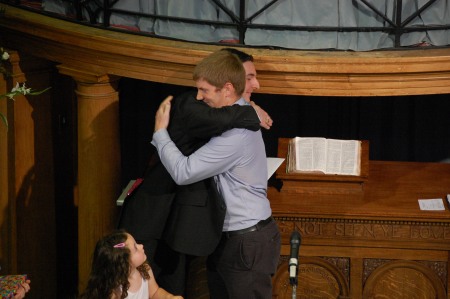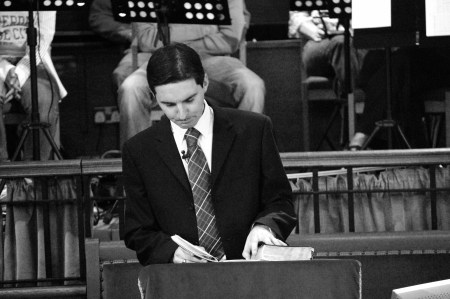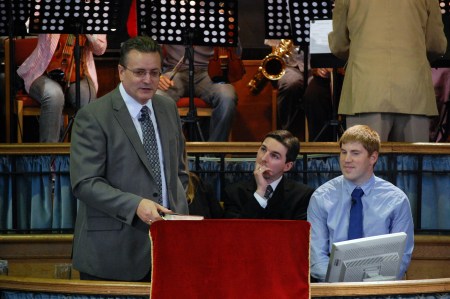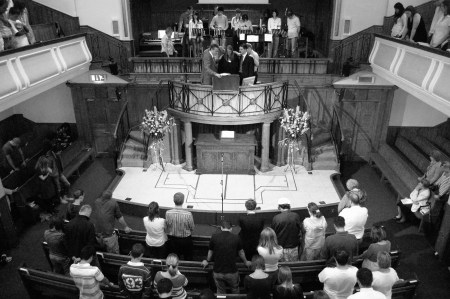HT: PJ Tibyan.
“Preaching through Bible Books – This is from a conference in 2003 called, “Katoomba Christian Conference Centenary (Sydney, Australia).” D.A. Carson lectured on 12 points in preaching through a book of the Bible. You can listen to the audio by downloading the message here (left-click). This is taken from The Gospel Coalition website.
(1:38 ) – Read and re-read and re-read and re-read and re-read the book. – It’s a mistake to read the book once and then start reading commentaries (Read it in English and the original language).(3:11) – Ideally start the process early.Give time to re-reading, meditation, and saturation.
(4:58 ) – Eschew the division of head and heart.
(6:14) – Early on attain sufficient grasp of the book that you can succinctly state (a) what the book is about, (b) what this book contributes to the canon that overlaps with what other books bring to the canon, and (c) what distinctive things this book brings to the canon.(All these things need to be thought about simultaneously.This is what brings clarity and precision).Scan biblical theologies on the book to get a large scale picture of the book.
(11:10) – At roughly the same time determine (a) the number of sermons you’ll devote to the book and (b) the large scale outline of the book insofar as it impinges on your text boundaries for each sermon (11:10).
(19:27) – Start working on individual sermon preparation (either in advance or week by week).Ideally work on the text first. A.(23:26) – Ideally develop note taking techniques.This keeps your tools sharp and keeps your files for resources for future ministry (writing, preaching, evangelism, etc.); B.(29:32) – from these detailed exegetical notes(Note for young preachers: you must determine and discipline yourself to leave stuff out).You need to know what to leave out.The sermon is the best of the material and the highlights of what you learned.The aim is to think through what contributes to the burden of that text; C.Work on the text’s structure.Work on it so that it is fresh and appealing and helpful.
(32:27) – Each sermon must simultaneously stand alone and constitute a part of the series.
(33:34) – Remember the different contributions of a Paul House (corpus/book) biblical theology and a Charles Scobie (thematic) biblical theology.
(38:11) – Recognize that there may be special study and focus necessary for certain books (historical, cultural, literary genre, etc).
(42:32) – Ideally try to make your sermon material reflect in some way the genre of the book you are treating.
(44:24) – Remember constantly that this is not an exercise in artistic creation.The sermon is not an end in itself, but it is a re-revelation of God to his people.This means that as you prepare you ought to be thinking about the people to whom you are ministering.
(50:28 ) – ideally keep revising, praying, preparing so that it is not so much that you have mastered the material as that it has mastered you.There is a way of preaching that projects an image of being an expert and an image of being captured by the text.























